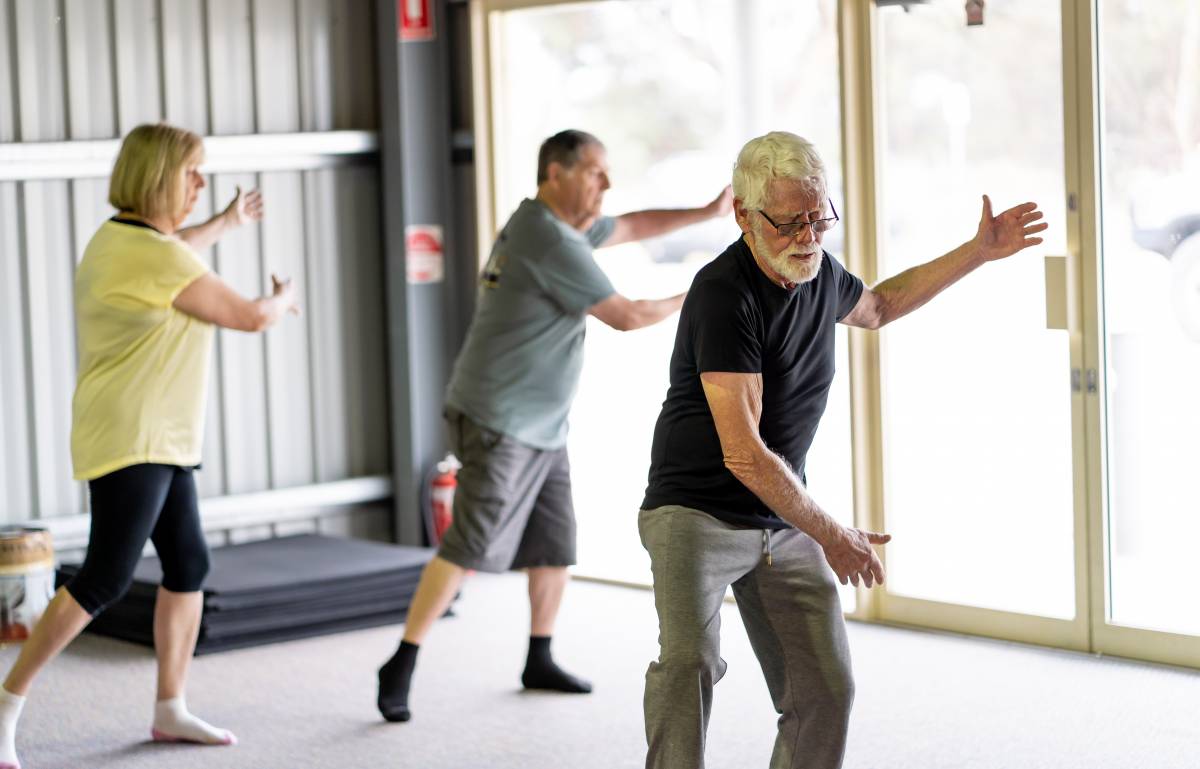'Ground-breaking' guidelines on preventing and managing falls launched in Age and Ageing journal
A multidisciplinary task force comprised of 96 experts from around the world – at least two of whom appear to be physiotherapists – has developed a set of recommendations on identifying and assessing the risk of falls among older people.
The World Guidelines for Falls Prevention and Management for Older Adults: A Global Initiative, which took three years to draw up, were published with some fanfare in last month’s edition of the journal Age and Ageing.
The task force’s remit was to weave a person-centred perspective into the guidelines by including the views of older adults with ‘lived experience’, as well as caregivers and other stakeholders. Another aim was to ’fill gaps’ left in existing falls guidelines and include recent developments in e-health. The task force hopes the guidelines will be relevant to practitioners in places with limited access to resources, such as low and middle-income countries
Dawn Skelton, a professor in ageing and health at the department of physiotherapy and paramedicine at Glasgow Caledonian University, helped to lead the task force’s working group on exercise.

Ambitious prediction
Falls can result in loss of confidence, avoidance of activity, loss of independence, social isolation and depression, even without injury. Yet falls can be prevented, with exercise having the strongest evidence base [Dawn Skelton]
Making an ambitious prediction in comments appearing on the university’s website, Professor Skelton said: ‘These guidelines will have a major impact on falls services delivery across the world. It has been a three-year mission and, until now, implementation has been patchy around the world and no country has had in-depth guidelines for falls.
‘The worldwide multidisciplinary nature of this group of experts and stakeholders makes them truly ground-breaking and relevant for a global healthcare audience.
Professor Skelton, an exercise physiologist who is an honorary fellow at the Chartered Society of Physiotherapy, noted: ‘Although some falls may appear minor, the human impact of falling can be devastating for older people from a psychological and physical perspective.
‘Falls can result in loss of confidence, avoidance of activity, loss of independence, social isolation and depression, even without injury. Yet falls can be prevented, with exercise having the strongest evidence base.’
Falls set to increase in number
Professor Skelton, an honorary professor at NHS Lanarkshire, where she is a member of the Falls Prevention Strategy Group, added that the Global Burden of Disease study estimated that in 2017 nearly 17 million years of life were lost as a result of falls.
‘The number of falls and related injuries is likely to increase, partly as the global population of older adults grows, but also because of the rising prevalence of multimorbidity and frailty. It is therefore highly significant that falls experts from across the globe have come together to agree and document guidelines for healthcare professionals to use in the prevention and management of falls.’
Exercise programmes
The guidelines recommend that falls prevention exercise programmes for older people living in the community should include balance challenging and functional exercises (such as ‘sit-to-stand’ and stepping). Sessions should be offered at least three times a week and be ‘individualised, progressed in intensity for at least 12 weeks and continued longer for greater effect’.
These exercise programmes should be delivered by ‘appropriately trained’ professionals who can adapt exercises appropriately to functional status and co-morbidities. ‘These professionals could be physiotherapists, exercise physiologists or kinesiologists, trained exercise instructors or other allied health professionals.'
The guidelines note: ‘We acknowledge that this will be difficult in some settings but note that the vast majority of interventions found to be effective in trials used trained providers.' When feasible, include Tai Chi and/or additional individualised progressive resistance strength training, the guidelines add.
Include, when feasible, of Tai Chi and/or additional individualised progressive resistance strength training, the guidelines advise.
Avoid 'long lies'
The guidelines warn of the harm that is associated with ‘long-lies’ and not being able to get up from the floor. One older adult in eight reports lying on the floor for more than one hour, while up to eight in 10 people aged over 90 cannot rise from the floor after a fall, the guidelines note.
'Lying on the floor for more than an hour is associated with dehydration, electrolyte disturbance, renal failure, hypothermia, pneumonia and urinary tract infections, skin damage and pain, and declines in mobility and restrictions in activity, probably due to fear of a repeat fall.
'"Lift and assist" call outs should trigger falls prevention interventions. Pendent or wrist alarms, telehealth falls detectors, cord alarms or mobile telephones are also important in enabling people to call for help if they cannot get up if they live alone.
'However, the oldest old often still lie on the floor for a long time before they use a call alarm so it is important to help them regain this skill if they have had a previous long-lie,' the guidelines add.
It is not always clear what qualifications each member of the task force holds. However, it appears that Monica R Perracini, from the Masters and doctoral programmes in physical therapy at the Universidade Cidade de Sao Paulo, Brazil has a background in physical therapy. Susan M W Hunter, who is based at the School of Physical Therapy, Faculty of Health Sciences, Elborn College at the University of Western Ontario, also appears to be a physical therapist.
To see the full version of article in Age and Ageing titled World Guidelines for Falls Prevention and Management for Older Adults: A Global Initiative,visit: https://academic.oup.com/ageing/article/51/9/afac205/6730755#377273615
Author: Ian A McMillanShare it with














